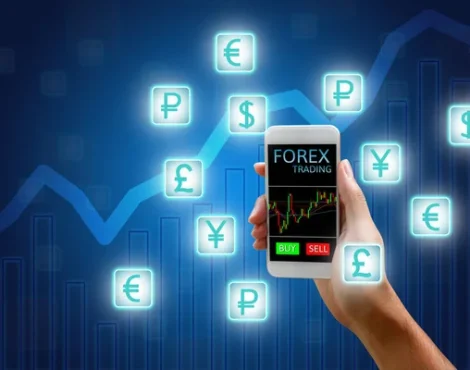In recent years, artificial intelligence (AI) has become a game-changer in the world of trading. With its ability to analyze vast amounts of data at lightning speed, AI has revolutionized the way financial markets operate. From predicting market trends to executing trades with precision, AI has become an indispensable tool for traders looking to gain a competitive edge in today’s fast-paced environment.
The Rise of AI in Trading

The use of AI in trading has been steadily increasing over the past decade, with more and more financial institutions and individual traders incorporating AI into their trading strategies. This rise can be attributed to the advancements in machine learning algorithms and computing power, which have made it possible for AI to process and analyze massive amounts of data in real-time. As a result, AI-powered trading systems are now able to make split-second decisions based on complex market patterns and indicators.
AI’s Impact on Market Efficiency

One of the key benefits of AI in trading is its ability to enhance market efficiency. By utilizing AI algorithms to analyze market data and identify trading opportunities, traders can execute trades more quickly and accurately than ever before. This increased efficiency not only benefits individual traders but also contributes to the overall liquidity and stability of financial markets.
Benefits of AI in Trading Strategies

- Improved decision-making: AI can analyze market data and identify profitable trading opportunities better than human traders.
- Risk management: AI-powered systems can assess risk factors and adjust trading strategies accordingly to minimize losses.
- Increased automation: AI can execute trades automatically based on predefined algorithms, reducing the need for manual intervention.
Challenges and Limitations of AI

While AI has proven to be a valuable tool for traders, it is not without its challenges and limitations. Some of the key challenges include:
- Algorithmic biases: AI systems can perpetuate biases present in the data they are trained on, leading to biased trading decisions.
- Overfitting: AI models may perform well in backtesting but fail to generalize to real-time trading scenarios.
- Cybersecurity risks: AI-powered trading systems are vulnerable to hacking and data breaches, posing a significant risk to traders’ assets.
AI-Powered Tools for Traders

There are a variety of AI-powered tools available to traders looking to leverage the power of AI in their trading strategies. Some popular tools include:
- Algorithmic trading platforms: These platforms use AI algorithms to execute trades automatically based on predefined criteria.
- Sentiment analysis tools: AI-powered tools analyze social media and news sentiment to predict market movements.
- Risk management software: AI algorithms assess risk factors and suggest optimal trading strategies to minimize losses.
The Future of AI in Trading Industry

As AI technology continues to advance, the role of AI in the trading industry is poised to grow even further. AI-driven trading systems are expected to become more sophisticated, capable of processing even larger volumes of data and making more accurate trading decisions. Additionally, the integration of AI with other emerging technologies such as blockchain and big data analytics is likely to further enhance the capabilities of AI-powered trading systems. In the coming years, AI is set to revolutionize the trading industry, paving the way for more efficient, automated, and profitable trading strategies.




Interesting read about AI in trading. It looks like AI helps make better decisions and reduce risks.
AI seems to be changing the way trading is done. It’s fascinating how it can analyze so much data quickly.